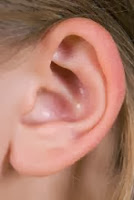We know that Roux-en-Y gastric bypass surgery is effective to induce weight loss, causing an average weight loss of about 40% of total body weight. How this actually happens is still far from completely understood. Many mechanisms are likely at play, but one of the most hotly debated is whether energy burn (called energy expenditure) goes up, down, or does not change after gastric bypass surgery.
We have recently published the results of our randomized, controlled clinical trial in gastric bypass patients, to add to our understanding of this complex area.
In this trial, conducted at the University of Copenhagen and published in the International Journal of Obesity, we enrolled 28 patients, and placed them on a low calorie diet (1000 kcal/day) in preparation for their gastric bypass surgery. Patients were randomized to have surgery either 8 weeks or 12 weeks after the start of the low calorie diet, such that we could compare them just before the second group had surgery. (This protocol enabled us to use a ‘pair-fed’ control model, as there have been criticisms of other studies comparing post surgical patients to control groups who are eating totally differently, not on a low calorie diet, and not on a negative weight trajectory.) We then repeated testing on the entire group at 1.5 years post surgery.
We found that at 3 weeks postoperatively, patients had lower body composition-adjusted 24 hour and basal energy expenditure compared to those who had not yet had their surgery. However, at the 1.5 year mark, patients’ energy expenditure was not different compared to their own preoperative values. We also found that surgery increased the postprandial response to many hormones, including GLP-1, PYY, bile acids, and FGF-19. Decreases in appetite were particularly associated with increased GLP-1, increased PYY, and decreased ghrelin.
So, our study suggests that the decrease in weight seen after gastric bypass surgery is not caused by an increase in energy expenditure, but that weight loss is more likely to be mediated by hormonally-induced changes in appetite.
An enormous and heartfelt thank you to my ex-PhD student (now postdoc!) Dr Julie Berg Schmidt, and all of my dear colleagues at the University of Copenhagen, for years of fantastic collaboration to bring this study to fruition! Stay tuned for many more publications stemming from this trial.












